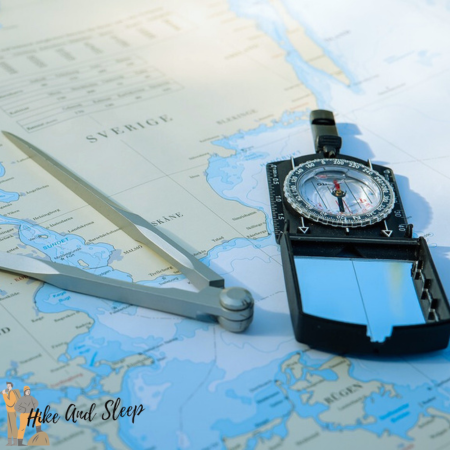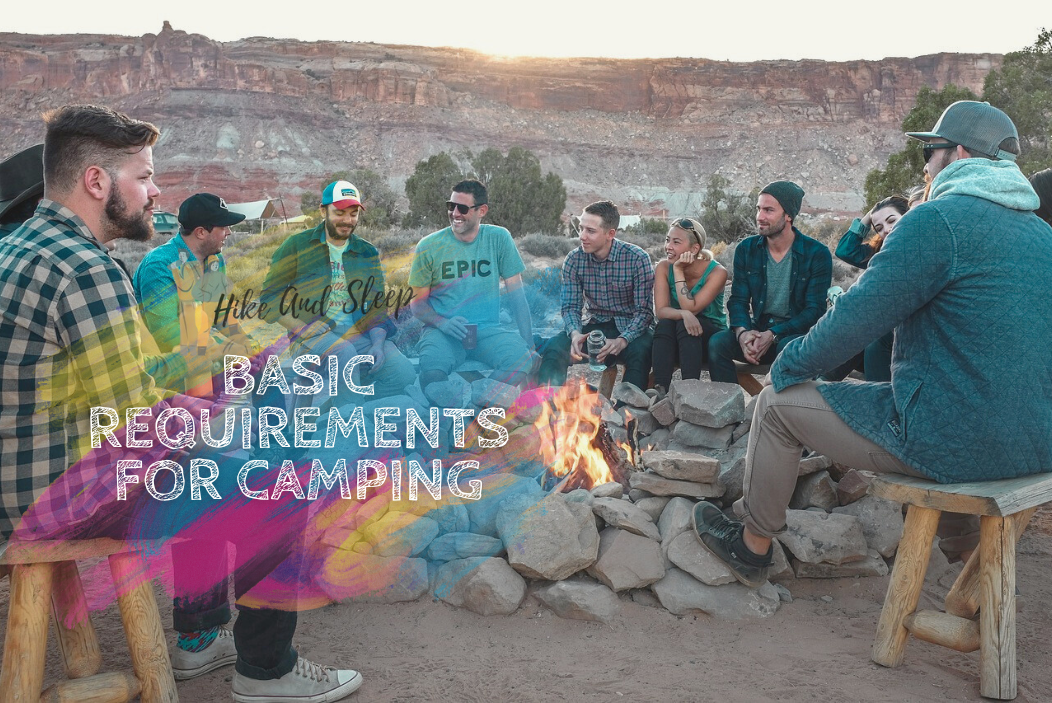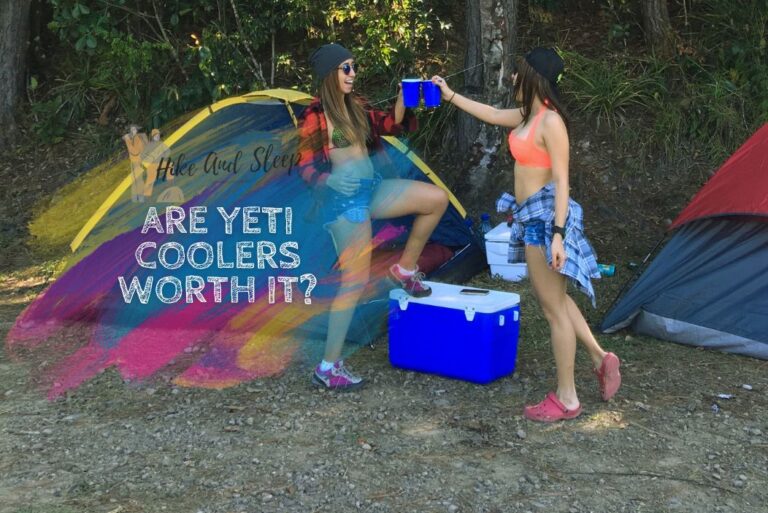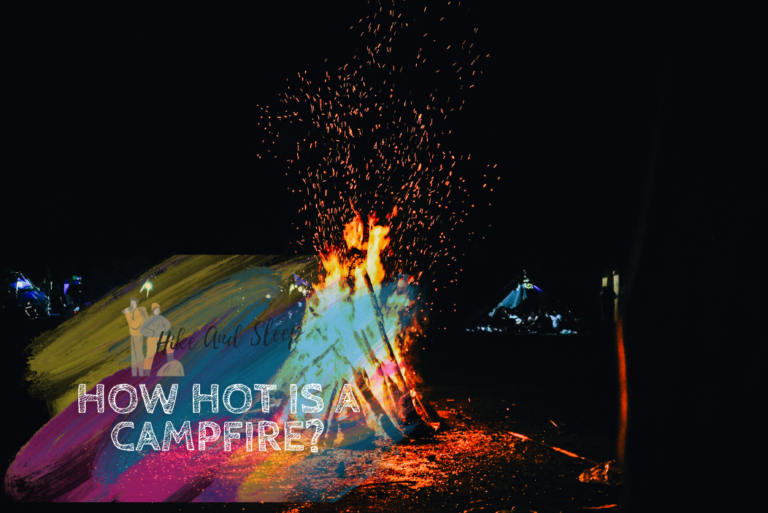Basic Requirements for Camping: Camping Essentials 101
Camping is a fantastic outdoor pastime that enables you to unplug from the daily grind and fully immerse yourself in the natural world.
Whether you are an experienced camper or a beginner, having the right needs is essential for a safe and enjoyable camping vacation.
What are the basic requirements for camping, then?
Here, we’ll examine the fundamental prerequisites for camping, emphasizing the items including appropriate shelter, sleeping gear, campfire essentials, cooking equipment, and more, you must bring with you while venturing into the woods.

Table of Contents
- 1 What Are The Basic Requirments For Camping?
- 1.1 Choosing the Right Shelter
- 1.2 Sleeping Gear: Comfort and Warmth
- 1.3 Outdoor Cooking Equipment
- 1.4 Hydration and Water Purification
- 1.5 Lighting: Illuminating the Campsite
- 1.6 First Aid Kit: Safety and Preparedness
- 1.7 Leave No Trace: Environmental Considerations
- 1.8 Weather Preparedness: Dressing for the Elements
- 2 The Basic Camping Packing list
- 3 Conclusion
- 4 FAQs
What Are The Basic Requirments For Camping?
Choosing the Right Shelter
When camping, having a suitable shelter is one of the basic requirements for camping. It guarantees a restful night’s sleep while offering protection from the weather. I cannot emphasize enough, that choosing an apt shelter space is one of the most basic necessities for camping.
You can select from a variety of alternatives, including tents, hammocks, and camper vans, based on your preferences.
Make sure your shelter is waterproof, sturdy, and adequately sized for the number of campers.
Sleeping Gear: Comfort and Warmth
To have a restful night, bring appropriate sleeping gear. This includes sleeping bags, sleeping pads or air mattresses, and pillows. Consider the temperature and choose a sleeping bag with the appropriate insulation rating. Additionally, a sleeping pad or air mattress provides insulation from the cold ground, enhancing your comfort and warmth.
Outdoor Cooking Equipment
Cooking delicious meals is an integral part of the camping experience. Carry portable cooking equipment like a camping stove, cookware, utensils, and food storage containers. Don’t forget to pack ingredients for simple and easy-to-cook meals that require minimal preparation.
Hydration and Water Purification
Staying hydrated is crucial during camping trips. Carry an ample supply of water and a reliable water filtration or purification system. These gadgets will guarantee that you have safe drinking water throughout your camping trip if you are in a location without access to clean water.

Lighting: Illuminating the Campsite
Good lighting is essential for navigation and safety during nighttime. Pack headlamps, flashlights, or lanterns to illuminate your campsite. These tools also come in handy for activities such as cooking or reading after sunset.
First Aid Kit: Safety and Preparedness
Accidents can occur anywhere, so keeping a first-aid bag well-stocked is essential.
Include things like bandages, antiseptic cream, painkillers, insect repellent, and any personal drugs that you might need. Familiarize yourself with basic first-aid procedures before your trip.
Leave No Trace: Environmental Considerations
Responsible camping involves minimizing your impact on the environment. Follow the principles of “Leave No Trace” by properly disposing of waste, respecting wildlife, and leaving natural areas as you found them. Leave the campsite cleaner than when you arrived.
Weather Preparedness: Dressing for the Elements
Be prepared for changing weather conditions. Check the forecast and pack appropriate clothing layers, including rain gear and extra insulation for cold nights. It’s always better to be over-prepared than caught unprepared.
The Basic Camping Packing list
Campfire Essentials: Fire-starting Tools and Safety
The campers congregate around the campfire, which provides warmth. Ensure you have the necessary tools to start a fire, such as matches or lighters, along with firewood or fire starters. It’s vital to follow fire safety guidelines and check if fire restrictions are in place in the camping area.
When exploring unfamiliar terrains, navigation tools are indispensable. Carry a compass, maps, and a GPS device if needed. You can stay on course and find your way back to the campsite with the aid of these instruments.

Clothing and Personal Items
Pack appropriate clothing for the anticipated weather conditions. Include layers for versatility and insulation. To protect oneself from the weather, don’t forget to pack necessities like hats, sunglasses, sunscreen, and bug repellent.
Camping Accessories: Multitools, Rope, and Duct Tape
Having a multitool with pliers, a knife, and other functions can prove invaluable in various situations. Additionally, carry essential items like rope, duct tape, and a repair kit for any unforeseen circumstances that may require quick fixes.
Entertainment and Recreation
While camping is about disconnecting, it’s also an opportunity for fun and relaxation. Pack recreational items such as books, board games, playing cards, or sports equipment to enjoy leisure time with family and friends.
Food and Snacks: Planning Your Meals
To ensure you have adequate food for the duration of your camping trip, plan your meals in advance. Make sure to choose non-perishable foods, simple meals, and snacks that will provide you with energy for outdoor activities. Consider the dietary restrictions and preferences of all campers.
Conclusion
Camping enables you to connect with nature and break out from the routine of everyday life. By being well-prepared and considering the basic requirements for camping, you can ensure a memorable and enjoyable camping experience. Remember to choose the right shelter, pack suitable sleeping gear, carry fire-starting tools, and prioritize safety with a well-equipped first aid kit. Be mindful of the environment, pack appropriate clothing, and plan your meals accordingly. Now, get out there, embrace the adventure, and create lasting memories in the great outdoors!
Read Also: Camping Fears
FAQs
Do I need camping experience to enjoy camping?
Not at all! Whether you’re a novice or a seasoned outdoor enthusiast, camping is appropriate for you if you have the soul that can enjoy the experience. Just make sure you have the necessities for a secure and pleasurable experience.
Can I go camping alone?
Yes, solo camping can be a wonderful and introspective experience. However, always inform someone about your plans, choose a safe camping location, and follow safety guidelines. We have jotted down some points for women who want to go camping solo. Give it a read!
How can I stay warm on cold nights while camping?
To stay warm, use appropriate sleeping gear, layer your clothing, and consider bringing extra blankets or thermal sleeping bags. A well-insulated shelter and a campfire can also help provide warmth.
Are there any specific safety precautions I should take while camping?
Absolutely. Familiarize yourself with the campsite rules and regulations, follow fire safety guidelines, be cautious around wildlife, and inform someone about your itinerary. Also, remember to carry a well-stocked first aid kit.
What should I do if I encounter wildlife while camping?
If you encounter wildlife, maintain a safe distance, observe from a distance, and avoid feeding or approaching them. Respect their habitat and never leave food or garbage unattended, as it may attract animals.







